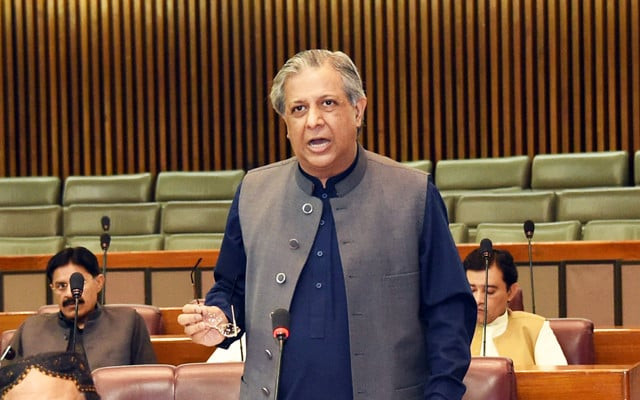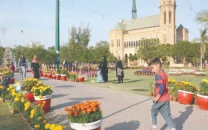Tribunal formation ECP’s prerogative: minister
Tarar says court shouldn't interfere in poll oversight body’s operations

Federal Minister for Law Azam Nazeer Tarar has said that establishing election tribunals is purely the prerogative of the Election Commission of Pakistan (ECP).
“In this regard, the Supreme Court also established a principle in the 1998 Mehram Ali case, stating that under Article 225, the formation of election tribunals falls within the authority of the ECP,” Tarar said while talking to journalists outside the Supreme Court building on Wednesday.
He said it is for the ECP to decide whether it wants to create new election tribunals, maintain the old ones, make any changes, or transfer cases from one tribunal to another.
Read Tarar condemns PTI’s ‘malicious’ SIFC attack
“It is not appropriate for high courts to send names [of proposed judges] and issue orders on how the tribunals should be formed. The ECP is a constitutional institution that operates in accordance with the Constitution,” he added.
According to a news report published in The Express Tribune on May 16, the Punjab government had refused to appoint some special court judges nominated by the Lahore High Court (LHC) chief justice.
The report, citing sources, said that in a letter sent to the LHC registrar, the PML-N-led Punjab government called for a “meaningful consultation” on the matter. However, the provincial government last week gave in and appointed the judges proposed by the high court.
On May 27, Acting President Yousuf Raza Gillani gave his seal of approval to two ordinances regarding amendments to the Election Act, 2017, and the National Accountability Ordinance, 1999.
Through the new Election Commission Ordinance, amendments have been made to the Election Act 2023, enabling changes to the law regarding the establishment of the Election Tribunal.
According to the ordinance, retired judges, along with serving judges of high courts, can also be appointed to the Election Tribunal for electoral disputes.
On the other hand, under the NAB Ordinance, the remand of a suspect in custody has been extended from 14 days to 40 days. The punishment for a NAB officer for filing a reference with mala fide intent has been reduced from less than 5 years to 2 years.
When asked about the ordinances, Tarar said these ordinances aim to improve the laws.



















COMMENTS
Comments are moderated and generally will be posted if they are on-topic and not abusive.
For more information, please see our Comments FAQ